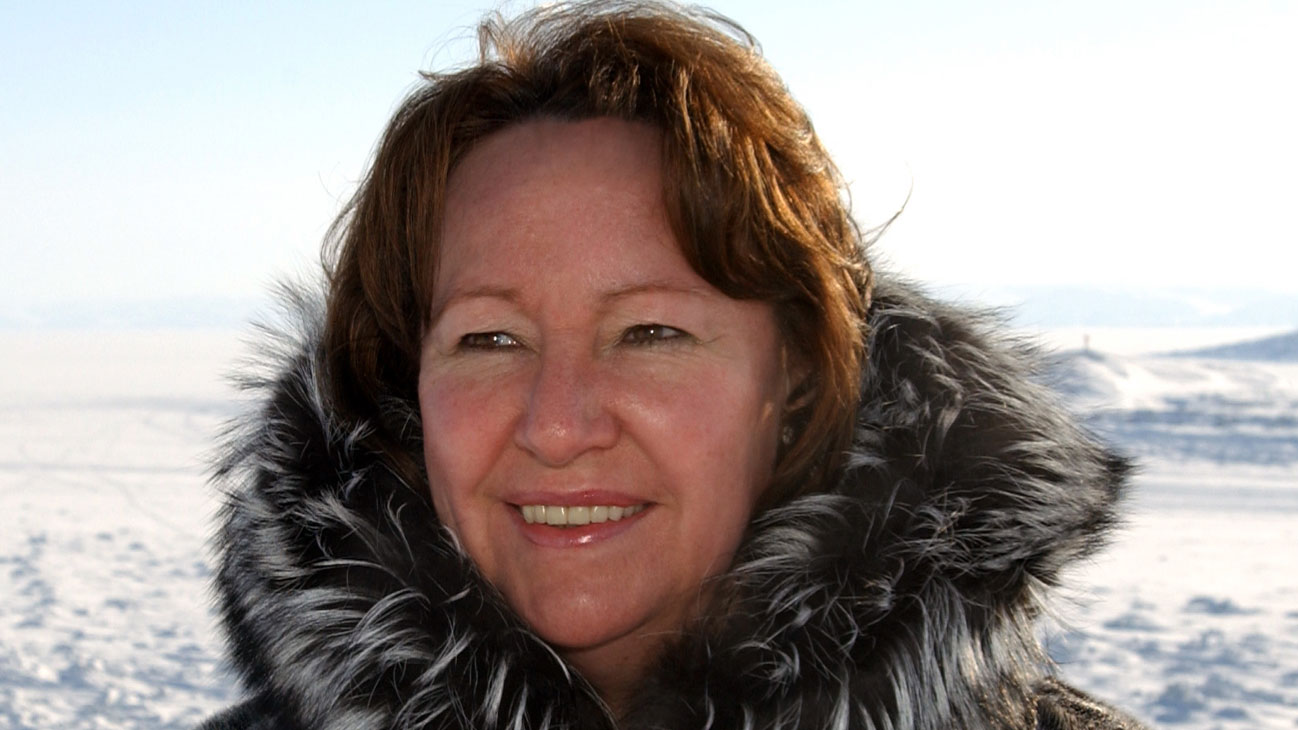Nobel Peace Prize nominee Sheila Watt-Cloutier is in the business of transforming public opinion into public policy. Experienced in working with global decision makers for over a decade, Watt-Cloutier offers a new model for 21st century leadership. She speaks with passion and urgency on the issues of today—the environment, the economy, foreign policy, global health, and sustainability—not as separate concerns, but as a deeply interconnected whole. At a time when people are seeking solutions, direction, and a sense of hope, this global leader provides a big picture of where we are and where we’re headed. Her new book, The Right to be Cold: One Woman’s Story of Protecting Her Culture, the Arctic and the Whole Planet, publishes this Tuesday, March 17:
From idea to finished product, Sheila Watt-Cloutier figures she spent about five years completing her book, The Right to be Cold.
But when she finally held the bright blue, 352-page hardcover in her hands, it felt oddly anticlimactic, she said.
“It’s been such a challenge getting it to this stage,” she said with a sigh March 10 at a book-signing booth set up at A Taste of the Arctic in Ottawa, Inuit Tapiriit Kanatami’s annual celebration of northern food and culture.
The Kuujjuaq native was keen to elaborate on those challenges but was repeatedly interrupted by friends and fans greeting her, hugging her and asking for her to sign their copies of the book.
She said she wrote most of it while teaching a course called “The Human Dimension of Climate Change” during a visiting professorship at Mount Allison University in tiny Sackville, N.B.
“When most people think of climate change, they think ice. They don’t think about people,” said Watt-Cloutier, environmental and human rights activist and Nobel Peace Prize nominee.
Teaching at Mount Allison was interesting in itself, she added.
Students were mostly clueless about how climate change was impacting people and also about other changes forced upon Inuit: residential schools, the High Arctic relocations and the sled dog slaughter in Nunavik, for example.
“They were shocked. They were angry. Some of them even cried,” Watt-Cloutier said. “They said, ‘how come we weren’t taught any of this?’ They felt betrayed by their parents and the school system.”
It was an intense year, both for her and the students, she said.
“I brought in some country food, even though most of them were vegetarians,” she said, laughing. “But we really bonded through that crisis. It’s fitting that that’s where I’m going to start my book tour, at Mount Allison.”
Setting out to write a book about how climate change is impacting your people and your homeland can be intimidating.
You want it to be true and fearless, she said, but it was important also to include the optimism and strength she associates with Inuit culture. Through endless rewrites and edits, she hopes she has struck the right balance.
Mostly, she’s just relieved that a labour of love and a passion for preservation can finally be shared. Then she quoted retired Canadian general Romeo Daillaire, author of Shake Hands with the Devil, a chronicle of his peacekeeping experiences in Rwanda in 1994.
“I’m so happy I am now carrying the book under my arm, and not just in my heart.”
In a brief speech at the ITK event March 10, Watt-Cloutier dedicated the launch of her book to her cousin Willie Watt, local leader and artist, who passed away in Kuujjuaq March 9 at the age of 66.
“With that, I send Willie off to the heavens where he is embraced by everyone who meets him,” she said.
The Right to be Cold, published by Allen Lane — a Penguin imprint named after the Penguin founder — will be officially released March 17. The 50 advance copies she brought to the ITK event sold out quickly.
Watt-Cloutier is currently planning a cross-Canada tour of talks and book signings which will take her through the spring of 2015.
There are no northern dates on that tour yet but Watt-Cloutier said she’s working with various foundations and other funding agencies in an effort to add Arctic stops.

